Forrest Li on how Sea navigated “rocky seas” to achieve its 1st profitable year since IPO
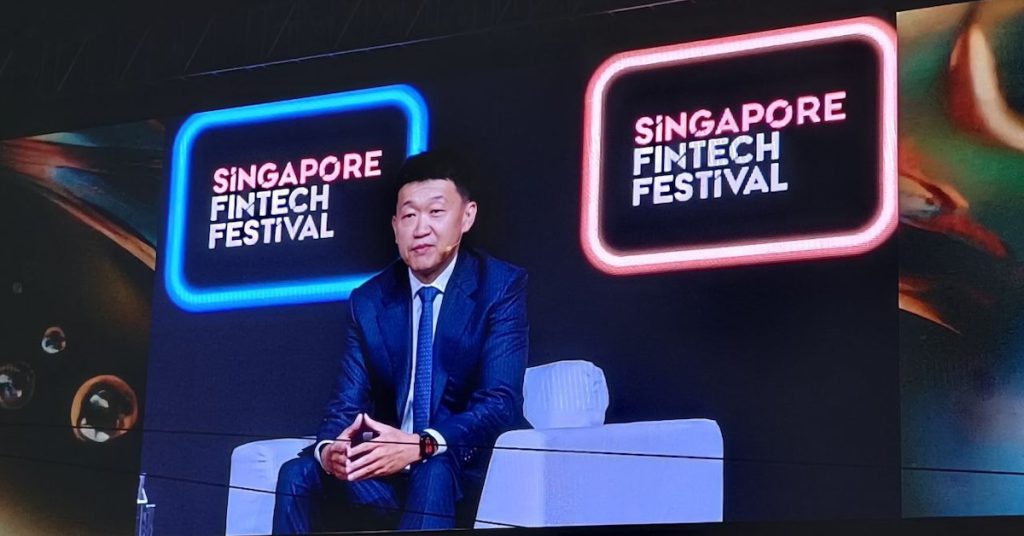
In 2020, Singapore gave birth to its first tech unicorn—Sea Limited, the company behind recognisable businesses such as gaming entertainment company Garena, ecommerce giant Shopee, and digital bank MariBank.
The tech conglomerate has experienced its fair share of highs and lows, and Forrest Li, Chairman and CEO of SEA Limited, took to the stage at 2024’s Singapore Fintech Festival (SFF) last week to share his insights on how the company scaled up and overcame its obstacles since its inception in 2009.
Fighting through the turbulence
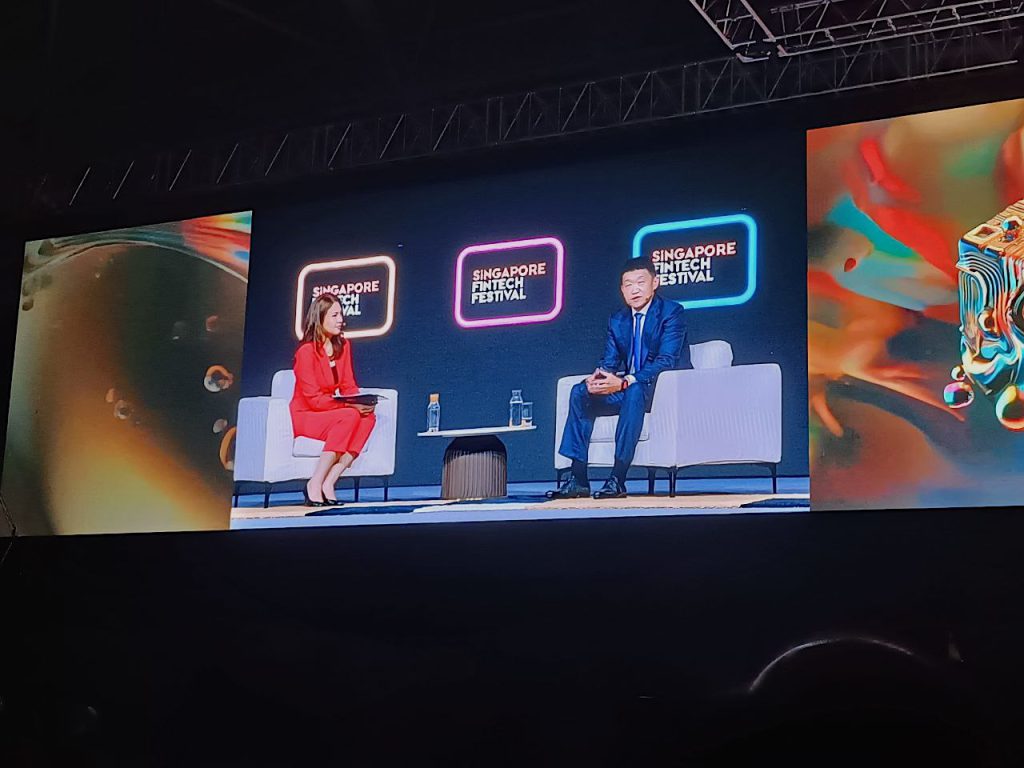
In March this year, Sea Limited reported its first profitable year since its IPO in 2017, with a net income of about US$162.7 million and earned revenue of US$13.1 billion in 2023—a sharp turnaround from its US$1.7 billion in 2022.
CNA’s Syahida Othman, the moderator for the fireside chat with Li, described the tech industry as cutthroat as the sector saw a series of layoffs, salary freezes, widening losses, and slower revenue growth.
Li responded to Othman by saying that “it has not been easy” due to the growing geopolitical tensions and the aftermath of the COVID-19 pandemic.
While the pandemic pushed many consumers online, its unpredictable nature made it difficult to make concrete plans and allocate resources. He added that, on top of that, capital became extremely expensive after the Federal Reserve “pushed to increase the interest rate”.
As a result, businesses suddenly had to shift from an abundant mentality to a capital-scarce mentality, where investors have become more conservative in funding. Li recalled having to “take a step back” and needing to “slow down a bit” to focus on ensuring that the business was robust and healthy financially.
I think, looking back, what we have done well is we took action very quickly. So we know how the world is different, whatever kind of the way we work in the past probably is not the case anymore, we need to do things in a fresh perspective.
But we never lose our face in the business, and at the end of the day, we always believe the profitability of the business is just a proxy of the value we created, and it’s not value you only created for yourself [and] the company, but for the whole society, for all your customers and for all your suppliers, and in our situation, is all the gamers, is everybody who shop and sell on Shopee.
Forrest Li, chairman and CEO of Sea Limited
Managing different businesses and customising solutions
Sea has businesses across industries, with their fintech arms being their most nascent. Li adds that the industry presents exciting growth opportunities to touch underserved markets.
In the case of their digital banking arm, MariBank, it started as an avenue to increase financial inclusivity in the Southeast Asian region. He pointed out that in the traditional banking model, one is presented with “better” investment options and finds it more accessible to acquire loans from a bank.
However, this is not the case with most people, especially small businesses, who need working capital loans and might not have the conventional pay speed data or the required credit score.
At this moment, we give out the credit loans to consumers, [where] there’s more than 10 million people [in] Indonesia [who] have access and borrowed money from us. And the average credit loan size they borrow is US$100 to US$200, so it’s a very, very small amount, but this can make a big difference in their life.
Forrest Li, Chairman and CEO of Sea Limited
In Singapore, he added that while most have access to credit and possess multiple credit cards, they are unsure of where to start in their investment journeys despite having a strong interest.
This led the company to launch Mari Invest in 2023, which, according to Li, has taken off and has become one of the “largest cash alternative investment products in Singapore”.
What’s next for Sea?
When asked about his plans for Sea, Li expressed the company’s commitment to increasing financial inclusivity in its offerings.
He pointed out that despite the company putting “a lot of relentless, good effort” into making its products and services more accessible, the ecommerce penetration rate is “still pretty low” in Southeast Asia, including Singapore.
This emphasises that there is still a lot of room to grow, and for Li, the way to do this is to make their products easier and cheaper to access and use.
He expressed his ambition to grow their customer base from millions to billions and is “excited” about new technological breakthroughs, specifically artificial intelligence (AI), cryptocurrencies, and blockchain technologies.
I think in the next 10, 15, years, all these new frontier technology will bring new services and value to serve people better, to make people’s better life better. And for us, we want to contribute [and] participate in those technological developments, but we also want to be more focused on the application and how to use these technologies, and to change it to [become] the daily product and the services [that] people can benefit from.
Forrest Li, Chairman and CEO of Sea Limited
Also Read: MAS’ new MD makes 1st appearance at SFF, shares overall vision for S’pore’s fintech sector
Featured Image Credit: Vulcan Post
Building tech for good: How S’pore and New Zealand are partnering for a greener future

[This is a sponsored article with the New Zealand Trade & Enterprise.]
As reports of extreme weather conditions and climate events become increasingly common, the urgency to address climate change has never been more pressing.
For Singapore, the stakes are especially high—the city-state is one of the lowest-lying nations in the world, making it vulnerable to flooding, and it faces constraints due to its small size and lack of natural resources.
Cleantech innovations, however, can offer Singapore a way forward to address these critical environmental challenges.
Innovations in this area can help the city-state reduce carbon emissions, improve energy efficiency, and enhance resource management—all while operating within the limitations that come with being a densely populated yet resource-scarce country.
One way Singapore is doubling down on cleantech is by embracing collaborations with countries like New Zealand. By leveraging their expertise in renewable energy and sustainable technologies, it can accelerate the development of cleantech solutions.
How can Singapore benefit from New Zealand’s innovations?
Singapore has already established itself as a technology and innovation hub for Asia, but it can also stand to benefit from innovations that are brought in from New Zealand and, together, co-develop it with Singaporean companies.
New Zealand has diverse and advanced technology when it comes to cleantech—in fact, 40.7% of the country’s primary energy is produced from renewable sources, and it is almost 85% of the way towards a fully renewable electrical grid.
The country is focused on building “tech for good” and is looking to deliver collaborative solutions to tackle the world’s most pressing issues to “create a better tomorrow”.
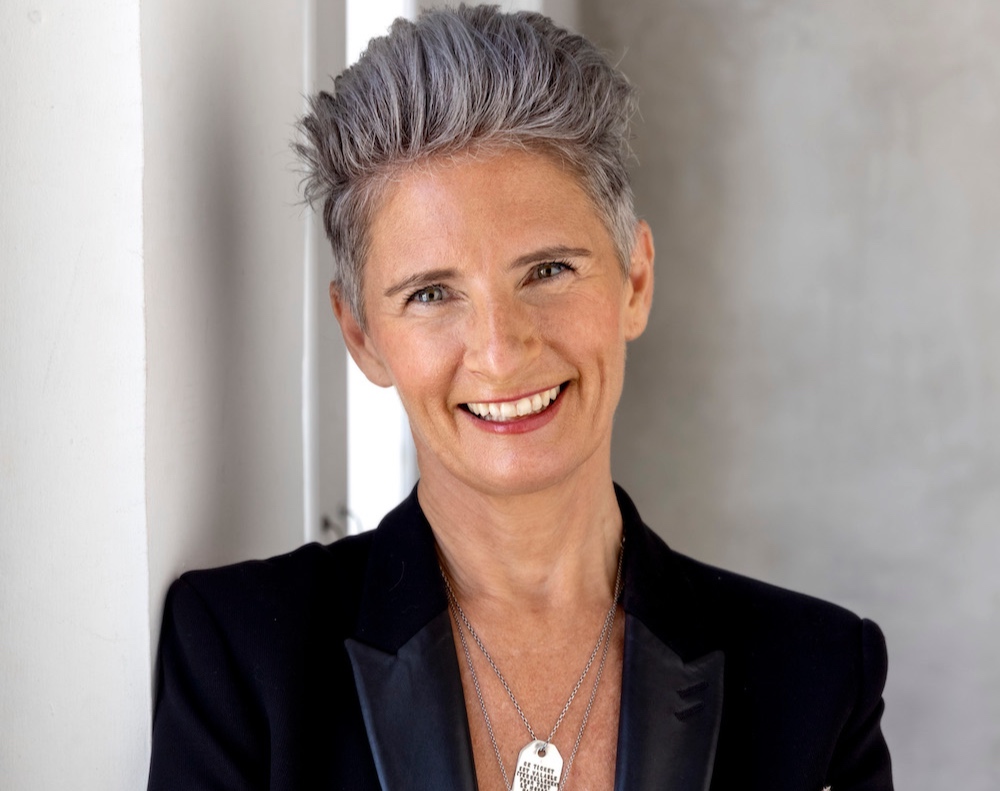
“This places us in a unique position to further grow the cleantech industry not just in our country, but also through collaboration with like-minded nations such as Singapore, to develop technologies that are good for the world,” said Maggie Christie, Trade Commissioner at the New Zealand Trade & Enterprise (NZTE)—a government agency set up by the country to support the global expansion of New Zealand-based companies, including into Singapore.
Partnerships with New Zealand companies are ongoing in Singapore
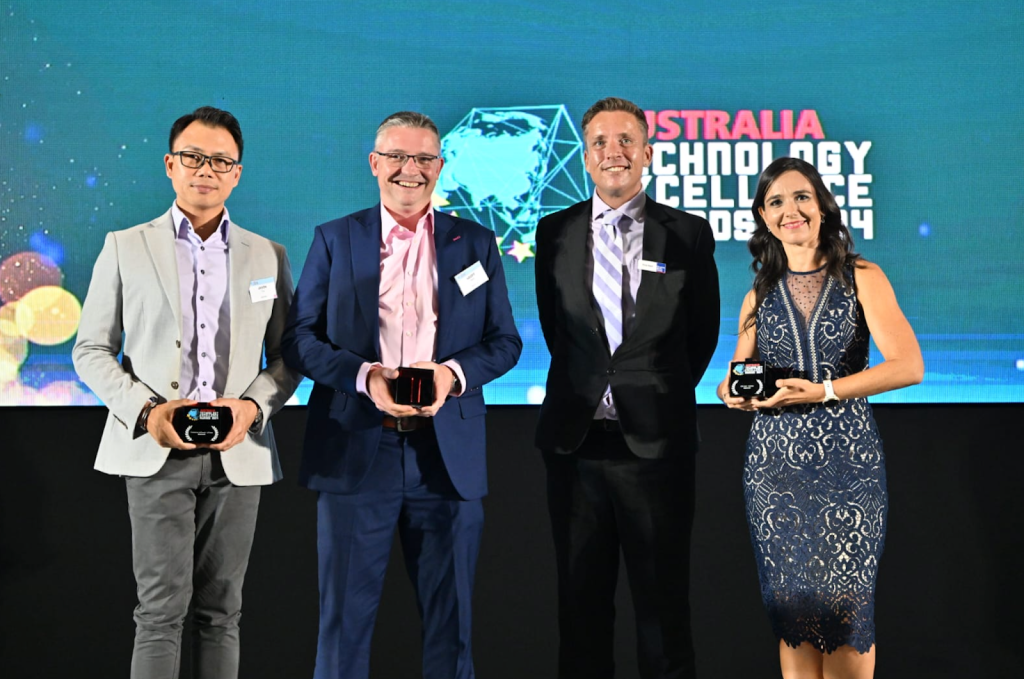
In Singapore, some partnerships with New Zealand companies are already underway.
Take New Zealand-based Gentrack, for example—the company works with the biggest energy and water companies worldwide, providing advanced billing and customer relationship management solutions specifically tailored for the needs of these companies.
Through its software-as-a-service innovations, the company empowers utility companies to achieve both business and sustainability targets. Singapore-based electricity company PacificLight is one such example.

PacificLight is a trailblazer in energy efficiency—in addition to the S$1.2 billion it has invested in building its power plant, the company has spent an additional S$5 million to further improve efficiency and reduce its carbon footprint.
Through its efforts, it has saved more than 8 milliwatt (mW) in energy—enough to power over 10,000 households. This has also led to a 1.5% reduction in carbon emissions, equivalent to taking 15,000 cars off the road.
In 2018, the company decided to expand its energy efficient offerings to serve residential customers following the launch of the Open Electricity Market, however, it lacked a B2C payments system to support this move.
Hence, it partnered with Gentrack to “efficiently scale its systems to handle increased data volumes, transactions and user demands”.
Since PacificLight incorporated Gentrack’s cloud-based solutions, the company has achieved remarkable improvements in its customer service and billing operations within a span of just eight months.
With fewer billing errors, enhanced integration with other systems, timely billing, and automated processes for faster promotions, the company has successfully managed to stay ahead of competitors and acquire more customers with the help of Gentrack, supporting Singapore in its transition to a lower carbon future.
Apart from PacificLight, Gentrack will also partner Senoko Energy—Singapore’s largest power generation company—to drive innovation and sustainability in the city-state. Currently, Senoko Energy offers carbon mitigation solutions for organisations, as well as solar power solutions for both B2B and B2C customers.
Through the partnership, Gentrack will introduce a platform designed to enhance billing processes and operational efficiency, allowing Senoko Energy to automate its complex business processes.
Singapore and New Zealand are leading the change towards a greener future
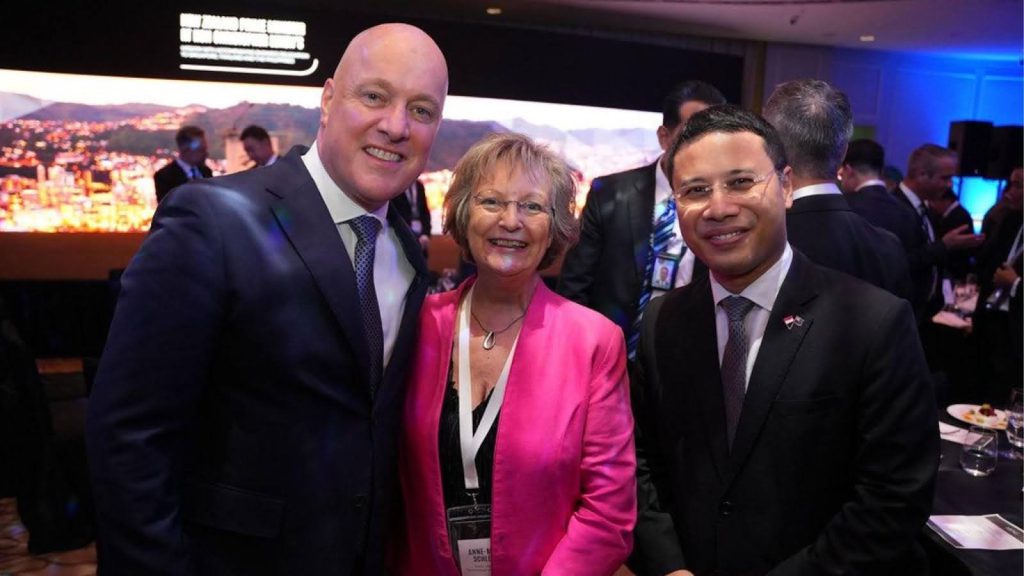
As small, advanced economies, both Singapore and New Zealand are natural partners in addressing common challenges, particularly in energy security, climate change, technology and innovation, food, energy, and wider security interests.
Beyond cleantech, collaborations between the two countries can open doors to further opportunities in sectors such as healthtech, fintech, and edtech, to name a few.
In healthtech, for instance, New Zealand-based digital software company The Clinician has teamed up with SingHealth to improve doctor-patient communication, leading to better patient outcomes and experiences.
Meanwhile, in the foodtech sector, the New Zealand Food Innovation Network (NZFIN) has partnered the Singapore Institute of Technology to develop mutual capabilities in food innovation.
“The partnerships between New Zealand and Singapore have direct benefits, where it fosters innovation, enhances market access, and addresses shared challenges,” said Maggie.
“Ultimately, this drives sustainable economic growth and positions both nations as leaders in their respective sectors.”
Get to know New Zealand companies and their technology offerings here.
Also Read: Going green with music: Here’s how bands like Coldplay are spurring sustainability efforts
Featured Image Credit: Getty
This M’sian quit pharmaceuticals to run her side gig, now makes “tea cup” candles full-time
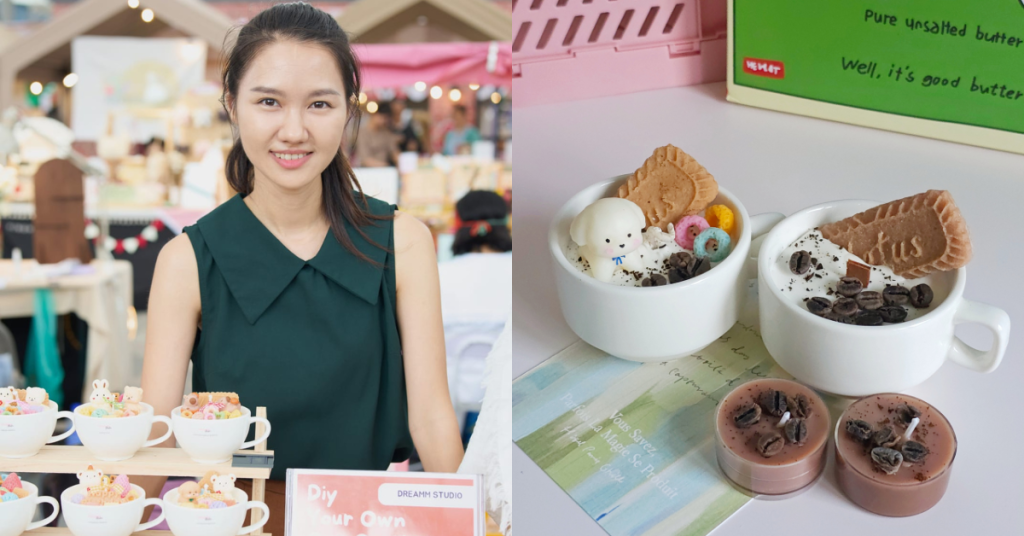
Candles are a common commodity nowadays, including artisanal ones with unique scents and designs.
But Dreamm Studio’s offering stands out in a saturated landscape with her intriguing concept. She offers cup candles, whereby wax is poured into an actual coffee or tea cup, completed with unique range of customisable wax “toppings”.
It’s not easy to set yourself apart in this industry, so here’s how Dreamm Studio found settled on this concept.
From pharmaceuticals to crafts
Behind Dreamm Studio is Cynthia Chen, who previously worked in the pharmaceutical industry.
Passionate about art and crafts, though, she eventually decided to leave the industry and start her own creative business instead.
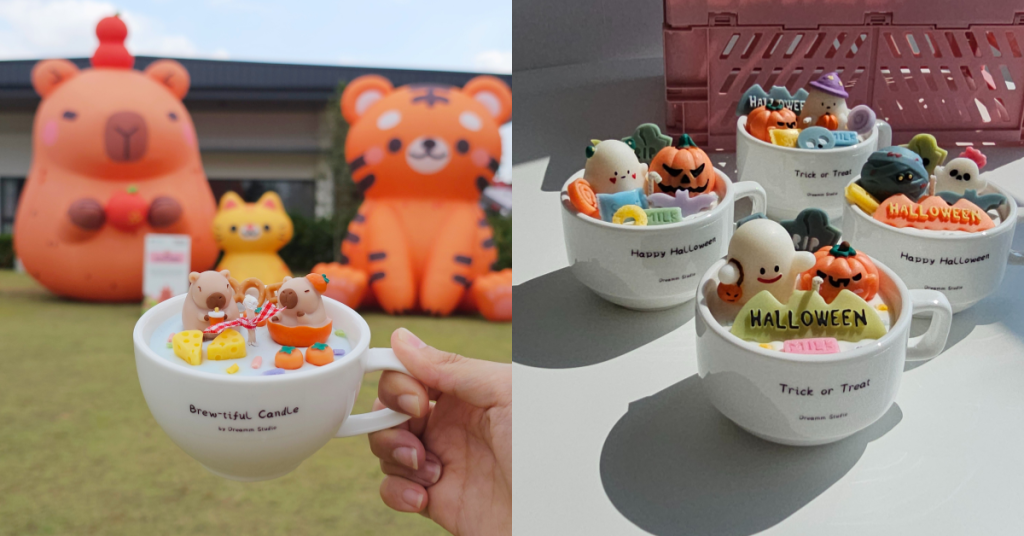
“I did have some experience with small businesses before Dreamm Studio,” she shared with Vulcan Post. “During university, I sold clothes and accessories online, and when I started working full-time, I ran a small side business selling gift sets during the festive season.”
So, why candles now? Well, her interest in candles started last year. She wanted to include handmade candles in her Christmas and Chinese New Year gift set, and lo and behold, the candles turned out to be a hit.
“The holiday sales were fantastic, and I discovered how much joy I found in creating candles and sharing them with others,” she expressed. “That positive response and my love for crafting gave me the confidence to turn this passion into my full-time job.”
Lighting up her business
When Cynthia first started making candles, they were simple candles in jars. But with the positive responses she got for her festive designs, she decided to bring her creative touch to all her candle offerings.
As a self-taught candlemaker, Cynthia would mostly upskill through hands-on experimentation.
“But as my passion grew, I wanted to refine my skills and produce even better products, so at the beginning of this year, I completed a formal candle-making course,” she said. “I’m now a certified candle artist and trainer, which has really elevated my craft.”
Even with the appropriate skills, though, the creative aspect of the R&D process can still be very challenging. It’s not easy to constantly come up with unique and beautiful designs.
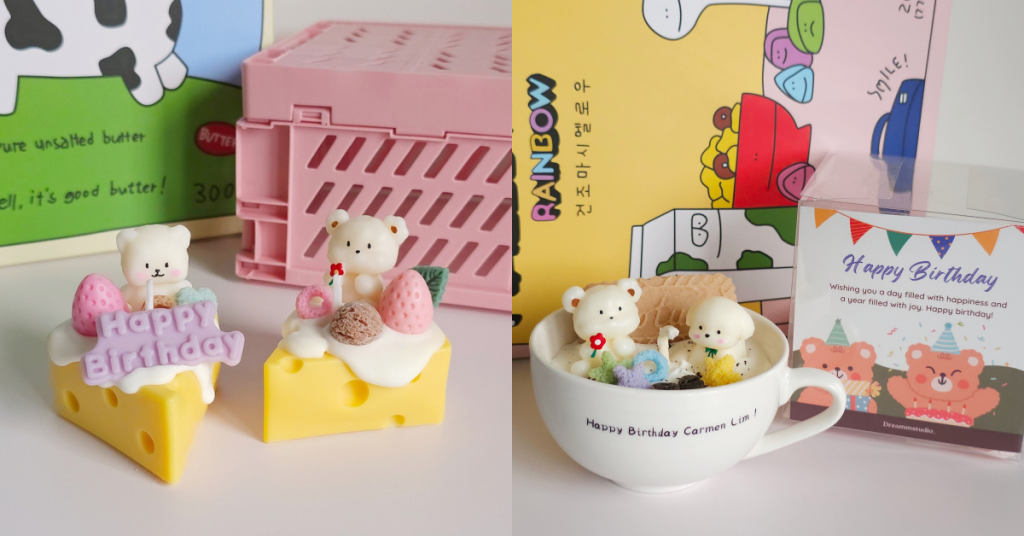
Cynthia explained that each new creation also goes through rigorous burn testing to ensure it not only looks great but has a good scent throw and performs safely.
“It’s a process that combines artistry and precision, and I really enjoy both sides of it,” she said.
With her cute designs, she originally targeted younger customers. But as she started attending bazaars, she discovered that her candles resonated with people of all ages—from young adults to older customers.
“Everyone found them charming and ‘healing’,” she explained.
Since attending bazaars in June and launching her online store, Cynthia estimated that she’s sold around 2,000 pieces of her products.
Not just a candle business
As mentioned, though, candle businesses aren’t rare nowadays. But Cynthia believes that Dreamm Studio stands out because they don’t just sell candles.
Rather, the brand offers customers a chance to “create something truly personal”.
“At bazaars, for example, I provide a DIY experience where customers can fully customize their candles, choosing the wax decorations and toppings they want. This way, each candle becomes a unique, meaningful piece, whether for themselves or as a heartfelt gift for someone else,” she reasoned.
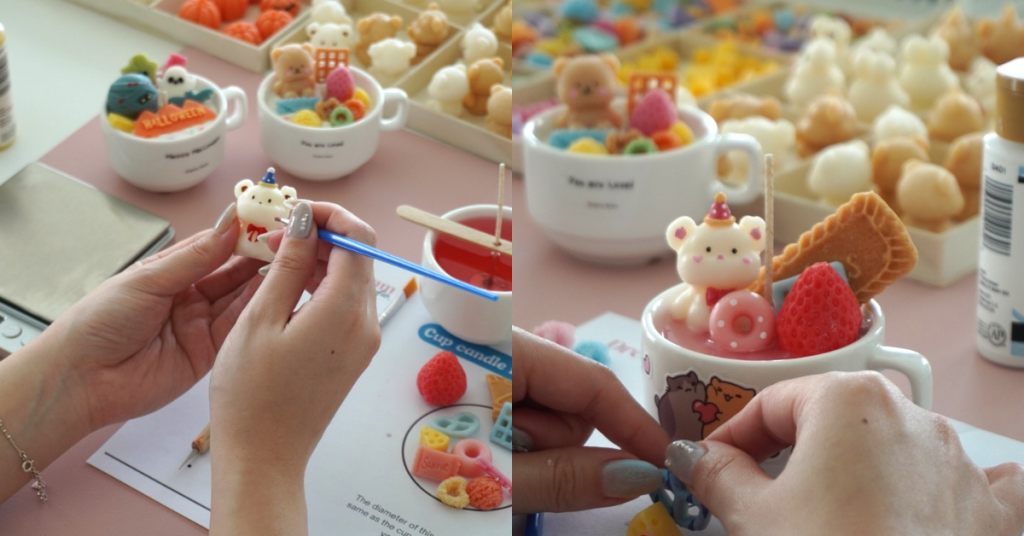
Cynthia explained that her tea cup candle idea actually came from a collaboration with a friend’s coffee roastery (KamiKofi) at Pingmin Market, where the theme was ‘crossover.’
She created a coffee-scented candle using real coffee grounds in a coffee cup, and it became her main design.
After choosing a preferred cup size and scent, customers can choose from a range of wax decorations and toppings, arranging them on top of the candle base to create their own unique design. Once happy with their arrangement, Cynthia helps secure the toppings for a polished finish. Finally, they pick a positive or fun sticker to add to the cup for an extra personal touch.
The pricing is fixed for the entire DIY cup (RM28), which includes all the toppings at no extra charge.
“This way, my customers can fully enjoy the creative process without worrying about additional costs—they can add as many toppings as they like until they’re happy with their design,” Cynthia said.
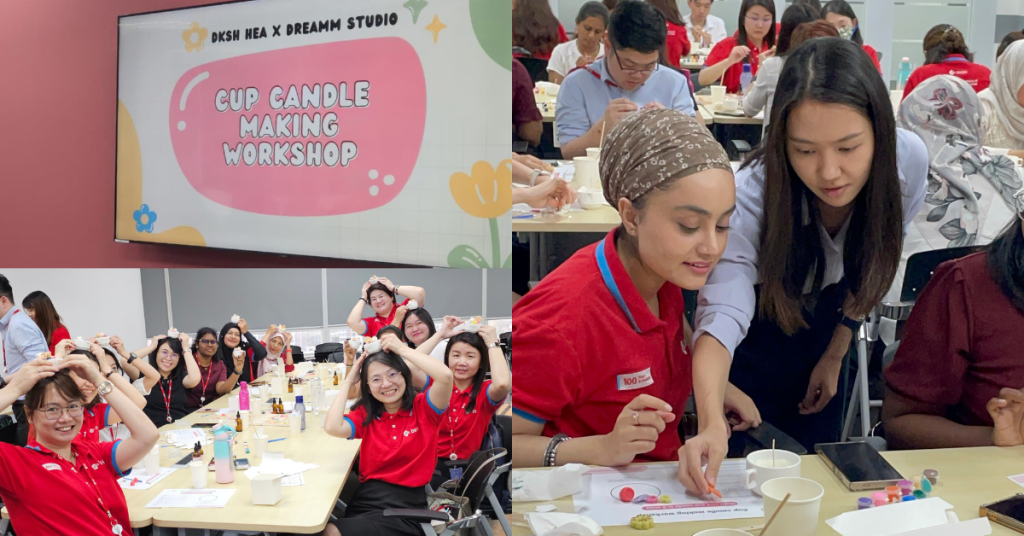
She also offers customisation, such as personalised words, at no extra cost.
Aside from the cup concept, she also creates candles shaped in adorable animals such as dogs and bunnies. Using moulds for the main structure of each candle, she then adds detailing for an intricate and realistic finish.
“I usually work in batches, which allows me to maintain consistency across each piece while also making the process more efficient,” she shared. “Each candle takes several hours to complete, including drying time, as I carefully craft each detail to create a unique and high-quality final product.”
As a response to customers’ interests, Cynthia has also started offering classes, giving others the chance to create their own unique candles.
Fanning the flame
Currently, Cynthia is a solopreneuer, handling all aspects of Dreamm Studio on her own.
She admitted, “Since I started this journey alone, I sometimes feel the weight of loneliness and the limitations of being a one-person operation.”
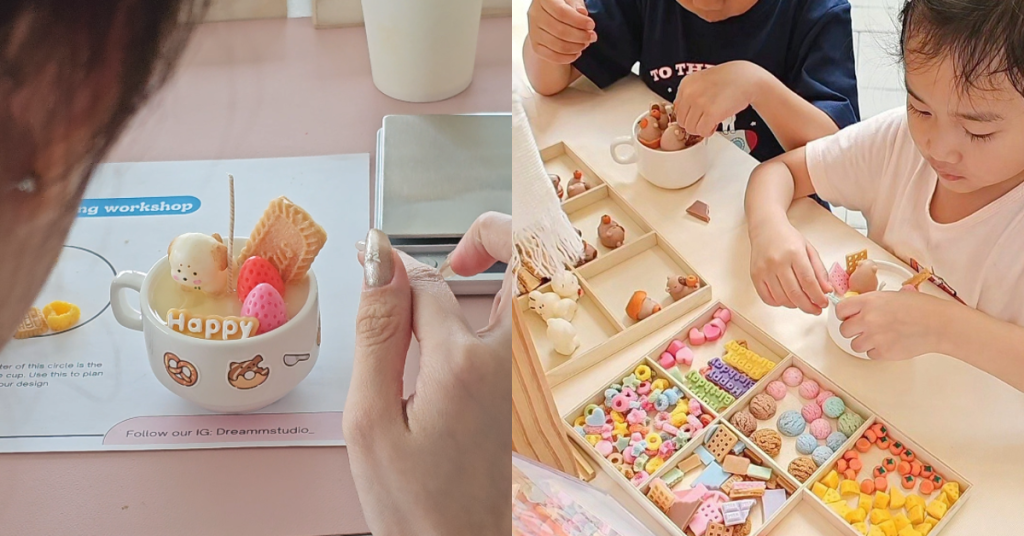
However, Cynthia believes this is where proper time management becomes crucial. She prioritises tasks and sets clear goals to ensure that she stays organised and productive.
“In the next few years, I envision Dreamm Studio expanding beyond candles to include collaborations with gifting companies, which I’ve recently started exploring,” she said.
She has also begun consigning products to a few cafes in the Klang Valley. It’s still in the early stages, but she hopes to expand consignments to other states across Malaysia so that more people can experience and purchase Dreamm Studio items.
“My goal is to go beyond just selling candles; I want each piece to spread joy and positivity every time someone looks at it,” she concluded.
- Learn more about Dreamm Studio here.
- Read other articles we’ve written about Malaysian startups here.
Also Read: How this Malaysian SME overcame financial hurdles to grow their business with this 1 solution
Featured Image Credit: Dreamm Studio
This biz is disrupting the M’sian fitness industry with gym “cubes” for rent at RM75/hr
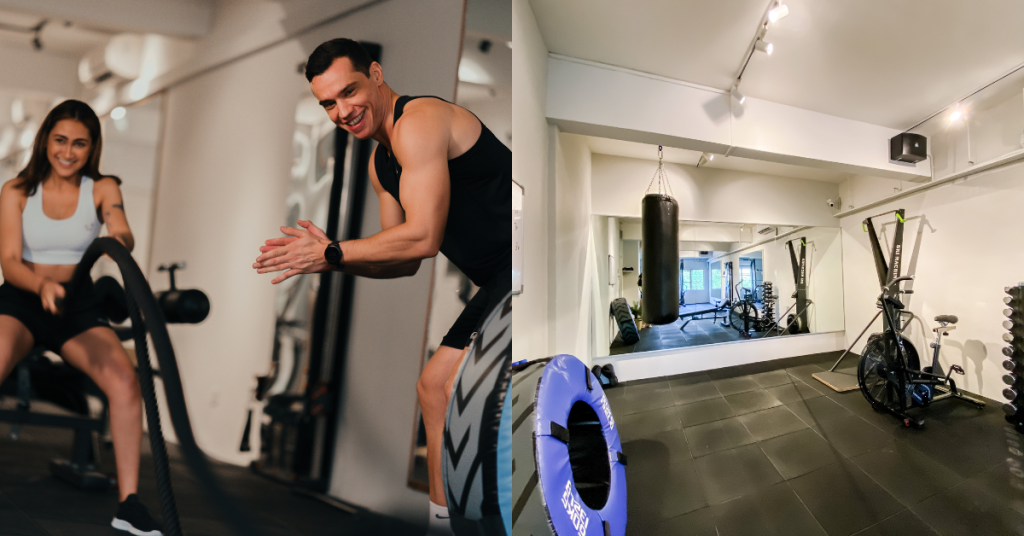
Private gyms seem to be all the rage these days, with more people looking for exclusivity and privacy to better fulfil their fitness goals.
One business that’s arguably taking this concept to the next level is Kamileon, which has been introducing private fitness “cubes” for rent to the Malaysian market.
Two Brits in Malaysia
The founders behind Kamileon are Alistair Lee and Richard Fleming, both of whom are from the UK.
Alistair boasts a strong background in sales and customer service, having worked for STA Travel and Travelpack. His extensive travels throughout the APAC region also gave him a better understanding of local cultures.
Meanwhile, Richard has held senior roles in the leisure and hospitality sectors, including Head of Fitness at NBC Universal Pictures and Sales & Marketing Director at David Lloyd Leisure. He has overseen the launch of some of the largest health clubs in Europe and developed strategies to grow businesses across multiple sectors.
For the past seven years, the duo has lived in Malaysia, where they have honed their passion for fitness and entrepreneurship.
Their combined expertise and passion laid the foundation for Kamileon Fitness.
Kamileon Fitness offers two distinct establishments with two different experiences—KamileonCUBE and KamileonX.
Fully equipped gyms for rent
Offering private fitness spaces, KamileonCUBE has expanded to five locations around the Klang Valley. Namely, they’re in Sri Hartamas, Ampang, Damansara Heights, and Subang.
The business got its start in 2021, though the concept was in the works long before that.
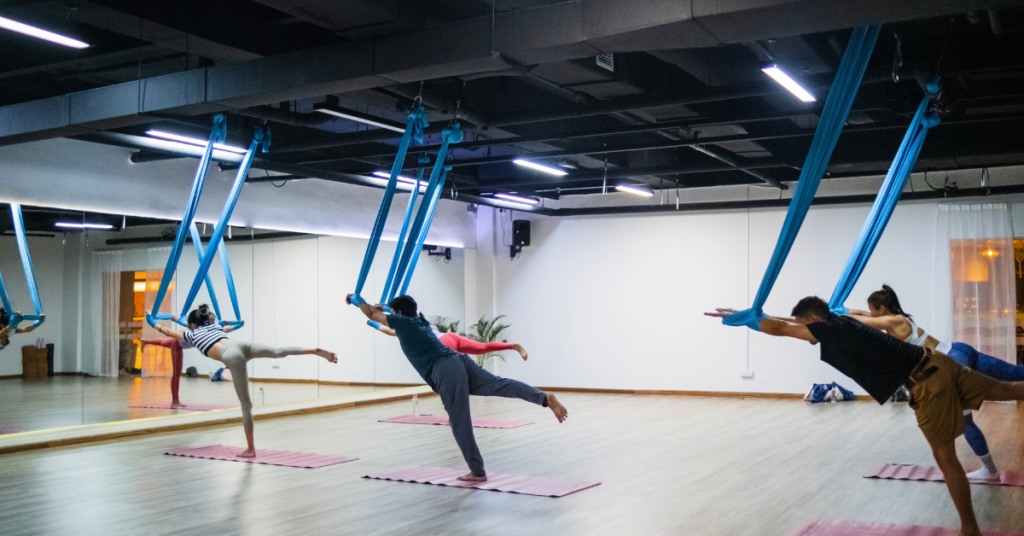
“The initial idea was born out of a dual frustration: There was a growing number of personal trainers and fitness professionals with a desire to go out on their own, provide a world-class experience to clients, and build their own business,” the team pointed out. “But the startup costs to opening a gym were prohibitive.”
KamileonCUBE was thus born as the solution, offering these professionals a range of fully equipped rooms (or CUBEs as they call it).
To help these individuals’ businesses take off, Kamileon lets them host classes free of charge while they build a client base.
“We don’t take any percentage of the revenue,” they clarified. “They can use our CUBEs to grow and we don’t tie them to us. They are free to work anywhere else and/or start their own gym.”
They elaborated, “We are looking for long-term partners, not a quick buck.”

At the same time, they also noticed gym-goers seeking private, flexible fitness spaces—especially in the post-pandemic world. Traditional gyms can be very crowded, so there was a need for fitness solutions that allowed for more control and privacy.
With that, KamileonCUBE also exists as a space for individuals to rent out fully-equipped gyms for personal use. For their studios, they include amenities such as air conditioning, sound systems, ballet barres, sprung wooden floors, lockers, as well as changing rooms and showers.
“Our primary target demographic is fitness enthusiasts who value privacy and flexibility. This includes busy professionals, fitness coaches needing a space for their clients, and individuals who prefer a private workout environment,” they explained.
Essentially, KamileonCUBE can be used for activities such as personal training, small group sessions, and physiotherapy.
A comprehensive user experience
Simplifying the user experience, Kamileon has its own app.
After registering via their app, users can browse available CUBEs and book their preferred time slot. An email confirmation with a PIN for entry will be sent. A single booking is priced at RM75/session, but there are various plans and packages available.
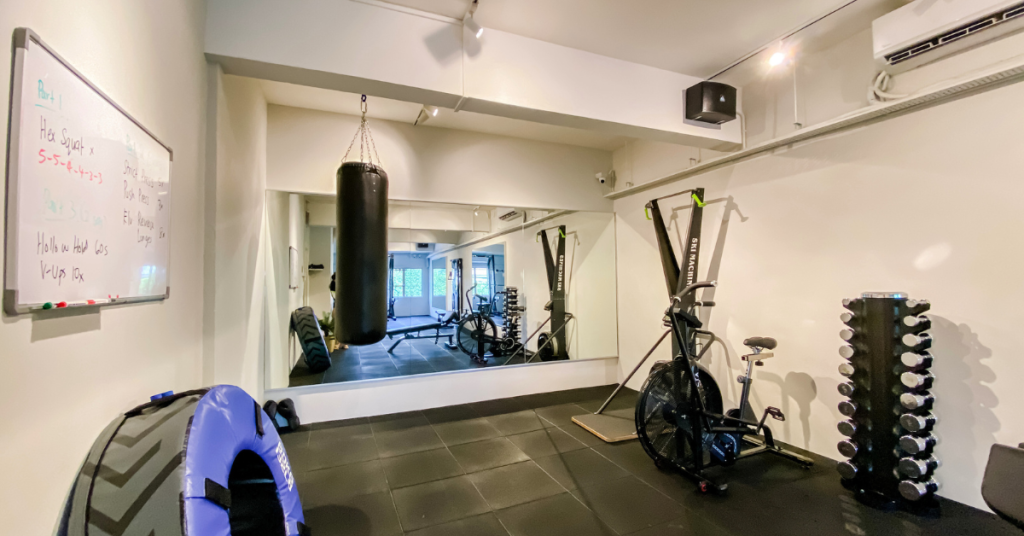
Once their session is over, they simply check out, and the space is reset for the next user.
“It’s a straightforward, hassle-free experience with the benefits of a fully equipped gym minus the crowds,” the team explained.
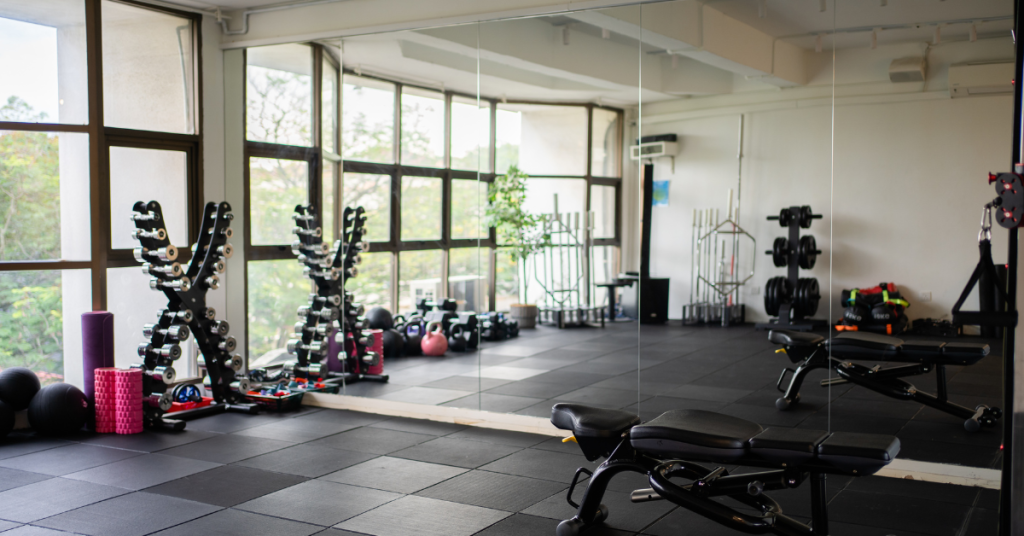
Before accessing a CUBE, users agree to a set of guidelines that cover equipment handling, ensuring a respectful and safe experience for all.
The team also monitors the spaces with a CCTV to ensure proper conduct and safety, while still maintaining user privacy.
Additionally, the team conducts periodic checks to ensure everything is in order.
An inclusive gym for all
Starting with the CUBEs, the business expanded to launch something called KamileonX in 2023.
Located in Ampwalk, Jalan Ampang, KamileonX focuses on class-based workouts and functional fitness. It comprises an affiliated HYROX studio, Reformer Pilates, and even a kids’ gym.
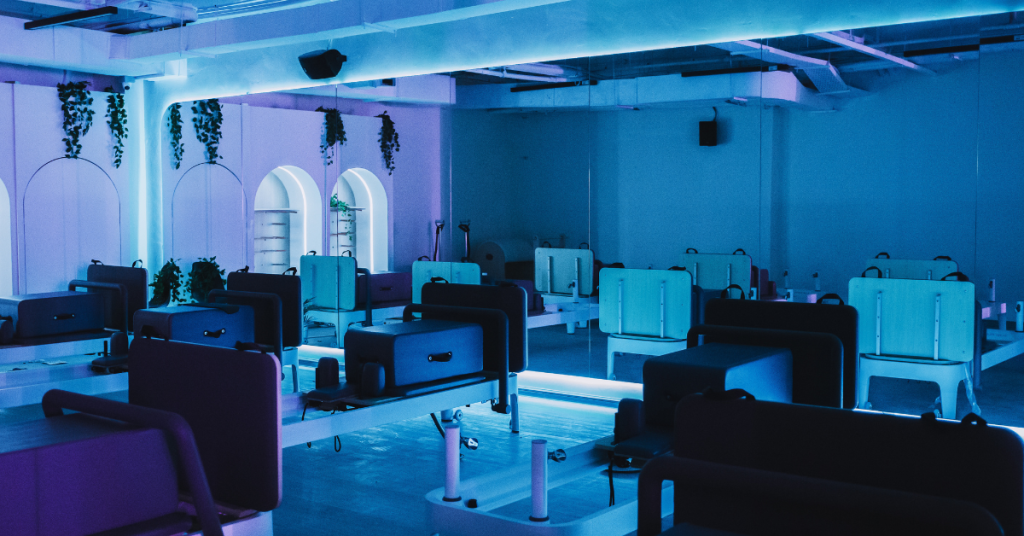
“We also take pride in being a family-orientated gym, introducing a unique concept in KL where parents can work out while their kids enjoy activities in the kids’ gym (Urban Jungle),” they pointed out.
The spacious common area also serves as a relaxing social hub where people can grab smoothies, coffee, or get some work done. This makes KamileonX more than just a gym, but rather an inclusive community and lifestyle space.
“We are the only inclusive health and fitness hub in Malaysia, incorporating kids, adults of multiple modalities, and a café,” they said. “[There aren’t] many places that an adult can go have a workout while the kids learn to backflip.”
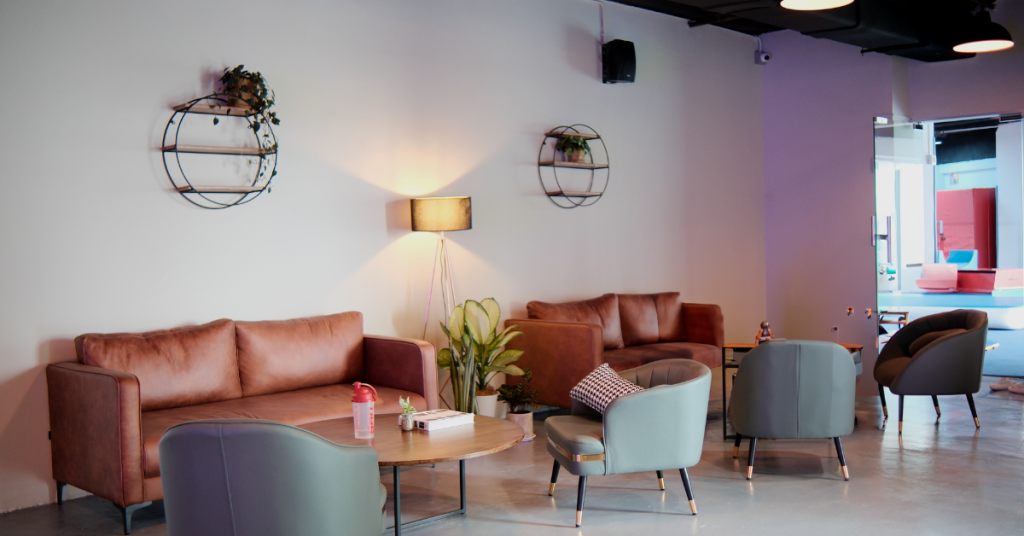
Franchising the brand
Currently, all CUBEs are owned and managed by Kamileon, ensuring they maintain control over the quality of the experience. Users pay per session or can opt for a subscription package for more frequent use.
The company’s revenue stream is primarily derived from bookings, but they also offer additional services, like personal training, to supplement income.
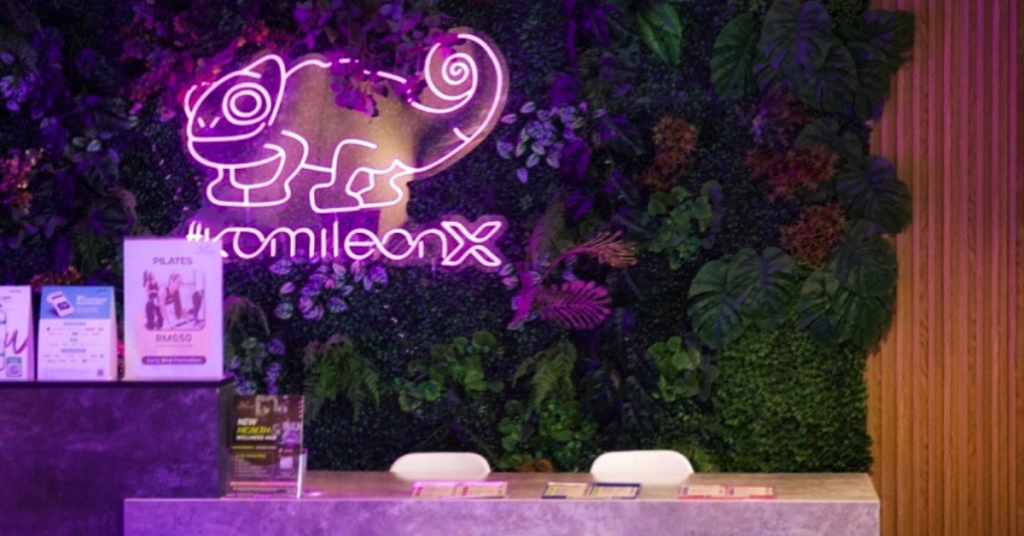
“As we continue to grow, we’re focused on scaling KamileonCUBE by expanding into new locations,” they said. “Our first step is to replicate our successful model in other high-demand areas in Kuala Lumpur and eventually nationwide.”
In fact, the team is already talking with potential partners to franchise their concept.
Teasing their upcoming plans, Kamileon shared that they are opening another “boundary-pushing experience” in Bukit Bintang in January 2025.
Also Read: How this Malaysian SME overcame financial hurdles to grow their business with this 1 solution
Featured Image Credit: Kamileon

